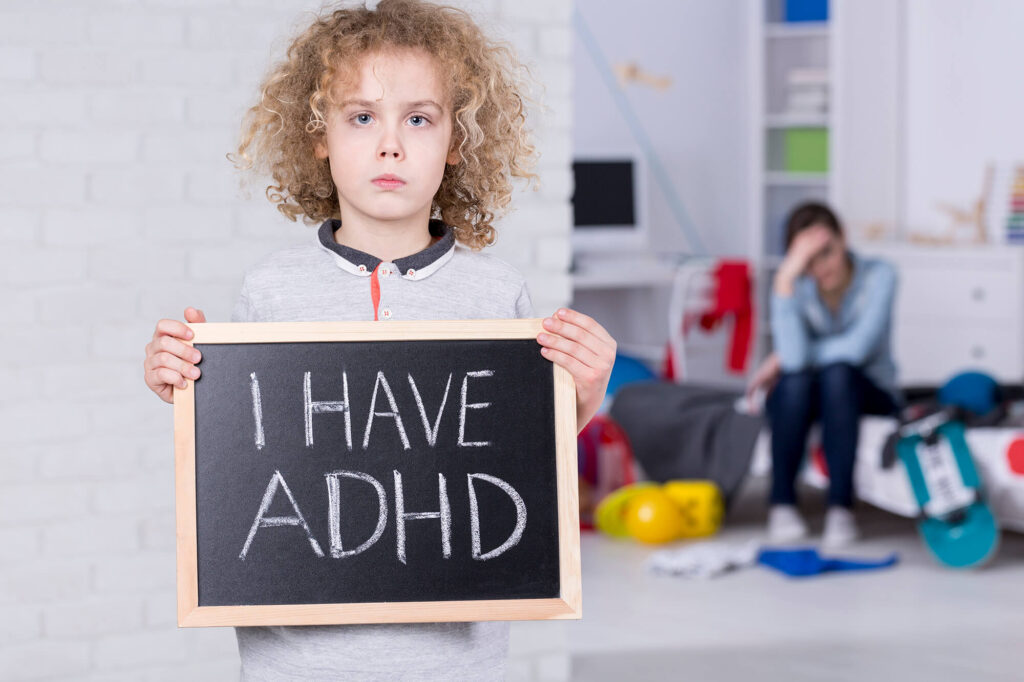
Introduction
Living with Attention-Deficit/Hyperactivity Disorder (ADHD) can be challenging, both for individuals affected by the condition and their loved ones. However, with the right understanding and support, individuals with ADHD can lead fulfilling and successful lives. Cognivia Psychiatry is a leading provider of specialized services for individuals with ADHD, offering personalized treatment plans and professional guidance. In this article, we will explore ADHD, its impact, and how Cognivia Psychiatry can help individuals with this condition.
What is Attention-Deficit/Hyperactivity Disorder (ADHD)?
Attention-Deficit/Hyperactivity Disorder (ADHD) is a neurodevelopmental disorder that commonly begins in childhood but can persist into adulthood. It is characterized by a combination of symptoms, including difficulty paying attention, impulsivity, and hyperactivity. These symptoms can vary in severity and may impact various aspects of an individual’s life, such as school performance, work productivity, and social relationships.
Symptoms of ADHD
- Inattention: Individuals with ADHD may struggle with maintaining focus, becoming easily distracted, and frequently making careless mistakes.
- Hyperactivity: Hyperactive behaviors include restlessness, excessive talking, fidgeting, and difficulty staying seated.
- Impulsivity: Impulsivity manifests as acting without thinking, interrupting others, and engaging in risky behaviors without considering potential consequences.
How Can Cognivia Psychiatry Help Individuals with ADHD?
At Cognivia Psychiatry, our dedicated team of professionals is committed to providing comprehensive support for individuals with ADHD. Our services are designed to promote understanding, enhance coping strategies, and improve overall well-being. Here’s how we can help:
1. Accurate Diagnosis
Accurate diagnosis is the first step toward effectively managing ADHD. Our experienced psychiatrists specialize in diagnosing and assessing ADHD symptoms. Through a thorough evaluation process, including clinical interviews, observation, and psychological testing, we can provide a reliable diagnosis and develop an individualized treatment plan.
2. Tailored Treatment Plans
Every individual with ADHD is unique, and treatment should be personalized to address specific needs. Cognivia Psychiatry offers tailored treatment plans that may include a combination of medication management, therapy, and lifestyle modifications. Our team collaborates closely with individuals and their families to develop strategies that promote symptom management and optimize daily functioning.
3. Medication Management
Medication can be an effective component of ADHD treatment, particularly in managing symptoms such as inattention and hyperactivity. Our psychiatrists are skilled in prescribing and monitoring medications that can help regulate neurotransmitter activity in the brain, improving focus, attention, and impulse control.
4. Therapy Services
Therapy plays a crucial role in supporting individuals with ADHD. At Cognivia Psychiatry, we offer various therapeutic approaches, including cognitive-behavioral therapy (CBT) and behavioral interventions. These therapies help individuals develop effective coping mechanisms, enhance organizational skills, and improve time management. Additionally, therapy sessions provide a safe space to address emotional and social challenges associated with ADHD.
5. Psychoeducation and Support
Understanding ADHD is essential for both individuals with the condition and their families. Cognivia Psychiatry provides psychoeducation, equipping individuals and their loved ones with knowledge about ADHD, its impact, and available strategies for managing symptoms. We also offer ongoing support and guidance to help individuals navigate the challenges associated with ADHD in their personal and professional lives.
6. Coaching and Skill-Building
Cognivia Psychiatry offers coaching and skill-building programs to help individuals develop strategies for overcoming specific challenges related to ADHD. These programs focus on enhancing executive functions, time management, organization, and social skills. By equipping individuals with practical tools, we empower them to succeed academically, professionally, and socially.
Frequently Asked Questions (FAQs)
1. Can ADHD be outgrown? ADHD is a chronic condition, but its symptoms can change over time. While some individuals may experience a reduction in symptoms as they enter adulthood, many continue to manage ADHD-related challenges throughout their lives. Seeking professional support can significantly improve quality of life and help individuals effectively cope with symptoms.
2. Is medication the only treatment option for ADHD? No, medication is not the only treatment option for ADHD. While medication can be helpful for managing symptoms, other interventions, such as therapy, behavioral strategies, and lifestyle modifications, are also important components of comprehensive ADHD treatment.
3. How long does it take to see improvement with treatment? The timeline for improvement varies depending on the individual and the treatment plan. Some individuals may experience noticeable improvements soon after starting treatment, while others may require more time. Consistency in following the treatment plan, along with regular communication with healthcare professionals, can help monitor progress and make adjustments if necessary.
4. Can adults have ADHD? Yes, ADHD can persist into adulthood or go undiagnosed until later in life. Adults with ADHD may face unique challenges, such as workplace difficulties and relationship issues. Seeking professional help can provide valuable insights and strategies to manage ADHD symptoms effectively.
5. How can family members support individuals with ADHD? Family support is crucial in helping individuals with ADHD thrive. Providing a structured and organized environment, maintaining open communication, and offering understanding and encouragement can make a significant difference. Educating family members about ADHD can also foster empathy and help create a supportive atmosphere at home.
6. Is ADHD a result of bad parenting or lack of discipline? No, ADHD is not caused by bad parenting or lack of discipline. It is a neurodevelopmental disorder with a complex interplay of genetic, environmental, and neurological factors. Parenting strategies and discipline can play a role in managing symptoms, but they do not cause the condition itself.
Summary
Attention-Deficit/Hyperactivity Disorder (ADHD) can present unique challenges, but with the right support and understanding, individuals with this condition can thrive. Cognivia Psychiatry offers a comprehensive range of services tailored to address the specific needs of individuals with ADHD. Through accurate diagnosis, personalized treatment plans, therapy, coaching, and ongoing support, Cognivia Psychiatry empowers individuals to manage their symptoms effectively and lead fulfilling lives.




